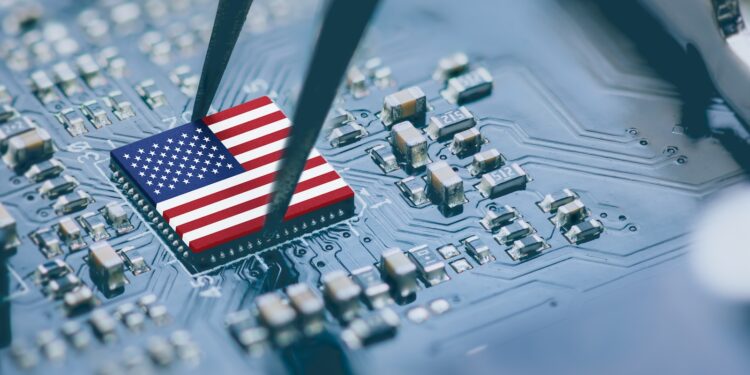The US government has announced new tariffs: Imported semiconductors will be taxed at 100 percent in the future. The measure aims to strengthen domestic production. Companies like Apple, which are already investing heavily in building manufacturing facilities in the US, could be exempt from these tariffs. This particularly affects the supply of chips, on which tech companies rely heavily.
Semiconductors are among the most important components in smartphones, computers, cars, and virtually every modern technology. Dependence on manufacturers from Asia—especially Taiwan, China, and South Korea—has been a geopolitical and economic risk for the United States for years. The Trump administration's new tariff policy seeks to reduce this dependence. At the center of the discussion is Apple—one of the world's most valuable companies, which has previously relied heavily on foreign chip production.
100 percent tariff on chips – with exceptions
Donald Trump has announced that all chips and semiconductors imported into the United States will be subject to a 100 percent import tariff. The only exception applies to companies that either already manufacture in the US or have committed to doing so. Companies that only promise to do so but fail to implement the relocation will face further tariffs at a later date.
Apple invests in US production
Apple is among the companies expected to benefit from this exemption. The company has announced that it will invest approximately $600 billion in expanding its production in the United States. This means Apple meets the requirements to be exempt from the new import tariffs. The commitment was announced at a joint press conference at the White House by Donald Trump and Apple CEO Tim Cook.
Chips continue to come from TSMC
Apple currently sources its chips from Taiwan Semiconductor Manufacturing Company (TSMC), one of the world's largest semiconductor manufacturers. Until now, Apple processors were produced almost exclusively in Taiwan. Accordingly, there were great concerns that the company could be severely impacted by the new tariffs. The exemption now announced should ensure that Apple, despite its existing supply chain, will not have to bear any additional costs for imported chips for the time being.
No information on the start of the tariffs
Exactly when the new tariffs will take effect is not yet known. Details on the review procedures or the criteria for the exemption have not yet been published. The only thing that is clear is that companies that do not produce in the US and do not commit to doing so must expect significant additional costs.
Signal effect for other companies
The measure has the potential to trigger a shift in global tech production. Anyone who wants to sell chips in the US without punitive tariffs in the future will have to produce locally or at least invest in the appropriate infrastructure. For Apple, the exemption represents not only an economic advantage but also a stronger political position in an increasingly regulated market.
- Apple relocates entire glass production for iPhones to the USA
- Apple increases US investments to $600 billion
Apple secures advantages through US investments
Apple is unlikely to experience any short-term disadvantages from the new tariffs due to its investments in US production. The US government's decision demonstrates that political commitment and economic decisions are becoming increasingly intertwined. The technology market will have to adapt – especially smaller companies without their own production capacity in the US will feel the effects of the new tariff policy significantly. The best products for you: Our Amazon Storefront offers a wide selection of accessories, including those for HomeKit. (Image: Shutterstock / William Potter)
- Apple remains spared despite new Indian tariffs
- Tim Cook: Apple has the most exciting roadmap yet
- Apple warns of risks in billion-dollar deal with Google
- Apple Vision Pro: Weak numbers, strong future plans
- Tim Cook is the longest-serving Apple CEO
- Apple sells three billionth iPhone since 2007
- Apple restructures AI strategy: Major acquisitions possible
- Apple faces record tariff costs in Q4
- Tim Cook: Apple is making progress with personalized Siri
- Apple expands AI division – iPhone remains growth driver
- Apple Q3/2025: Profit, revenue and services on track for record results





